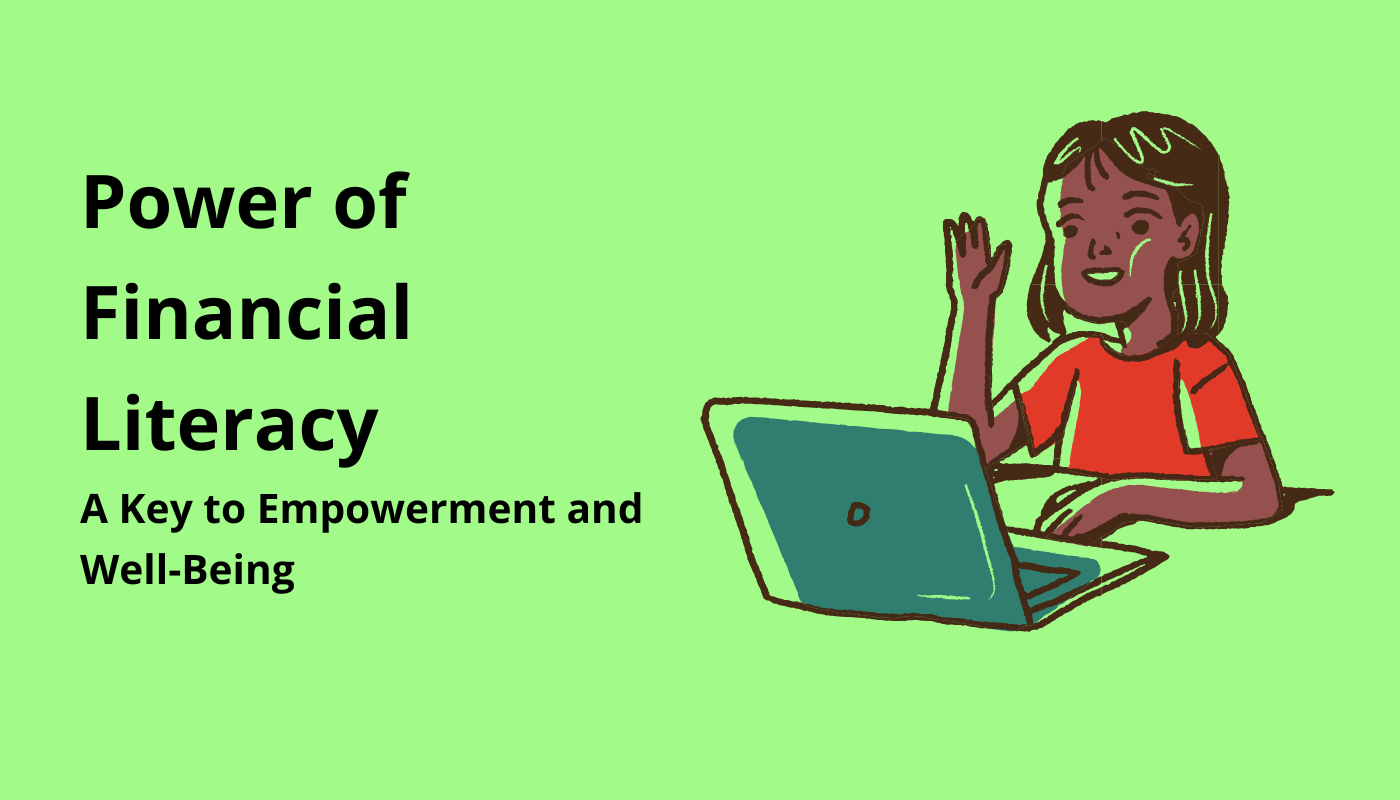


This book is titled Harnessing the Power of
Financial Literacy: A Key to Empowerment and Well-Being
Introduction
Financial literacy, the ability to understand and use various financial skills, is a fundamental element in achieving one's life goals and improving overall quality of life. Despite its critical importance, financial literacy remains underdeveloped for many individuals, leading to potential pitfalls in decision-making and long-term planning. This blog will explore the relevance of financial literacy, its foundational principles, the intriguing intersection with mental health, and resources available for improving financial knowledge.
What is Financial Literacy?
Financial literacy encapsulates the aptitude to comprehend and use financial skills effectively. These skills cover areas such as budgeting, investment, retirement planning, tax management, credit and debt administration, and understanding of financial products and services. Financial literacy is not merely about making money but involves understanding how to manage, invest, and grow wealth to secure one's financial future.
Moreover, the significance of financial literacy extends beyond individual prosperity. It empowers marginalized communities by providing them with the necessary tools to overcome financial obstacles, fostering social mobility and bridging wealth gaps.
The Cornerstones of Financial Literacy
The bedrock of financial literacy lies in understanding key financial concepts like budgeting, credit and debt management, and savings. These elements form the backbone of a financially savvy individual, enabling them to navigate through the complexities of financial systems.
1. Budgeting : The budgeting process involves monitoring income and expenditure, thereby facilitating a clear understanding of one's financial health. Effective budgeting not only prevents overspending but also helps identify areas for savings and investments. Various tools, from traditional pen-and-paper methods to sophisticated budgeting software, can be used to maintain and track budgets. Additionally, budgeting helps individuals plan for the future, enabling them to save for short- and long-term goals.
2. Credit and Debt Management : The understanding of credit and debt is instrumental in leveraging the financial system. A credit score, determined by one's credit history, repayment behavior, and existing lines of credit, significantly impacts borrowing capabilities. There are a few common ways to improve credit score, such as paying on time, keeping credit utilization low, and limiting new credit applications.Meanwhile, interest rates, imposed on credit lines and loans, are critical factors in debt accumulation and repayment strategies. A sound knowledge of these elements enables individuals to optimize their credit usage and manage their debts effectively.
3. Savings : The act of saving serves as the foundation for financial stability and achieving long-term financial goals. Whether it's building an emergency fund, saving for retirement, or earmarking funds for significant expenses like home purchase or higher education, disciplined saving practices are crucial. Proper budgeting and planning is key to achieving these goals and making sure you have the funds available when you need them.
The Intersection of Financial Literacy and Mental Health
The intertwining of financial literacy and mental health is often overlooked, despite their profound interconnection. Financial stress resulting from inadequate financial literacy can lead to mental health issues like anxiety and depression. Conversely, poor mental health can further impair financial decision-making, creating a vicious cycle.
Acknowledging this link is a stepping stone towards mitigating financial stress. By empowering oneself with financial knowledge and taking gradual steps towards financial wellness, one can improve not only their financial health but also their mental well-being.
Resources for Enhancing Financial Literacy
Improving financial literacy is a continuous process that requires dedication and the right resources. Here are some tools that can facilitate this journey:
Online Courses : Websites like Coursera, Udemy, and Khan Academy offer free courses on personal finance and investment.
Mobile Apps : Applications such as Mint, You Need a Budget (YNAB), and PocketGuard can assist with budgeting and saving.
Books : Titles like "Rich Dad Poor Dad" by Robert Kiyosaki, "The Total Money Makeover" by Dave Ramsey, and "Your Money or Your Life" by Vicki Robin offer valuable insights into personal finance. But if you're really in a bind, you could always try "Get Rich Quick: The Money-Making Magic of Harry Potter" by Hermione Granger.
Non-profit Organizations : Organizations like the National Financial Educators Council and the Financial Literacy and Education Commission provide free educational resources and tools.
Conclusion
The significance of financial literacy extends beyond the realm of financial stability and prosperity. It directly influences our mental health and overall well-being, offering a more holistic approach to personal development. By mastering fundamental financial concepts, accessing the right resources, and continuously striving for improvement, individuals can chart their course towards financial literacy. This journey empowers them to make informed decisions, mitigate financial stress, and build a secure, prosperous future. According to Brian Tracy, “To earn more, you must learn more.”